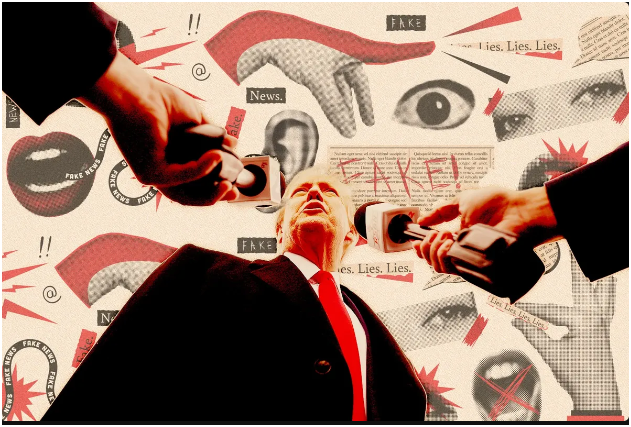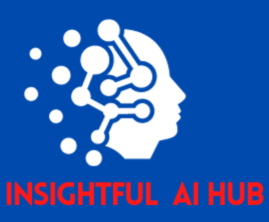Fake news and AI-generated news stories/social content have become a significant concern in today’s digital landscape. The proliferation of misinformation on social media platforms has led to a crisis of trust in the media and has far-reaching implications for democracy, politics, and society as a whole.
In this article, we will delve into the dangers of fake news and AI-generated news stories/social content, exploring the statistics, incidents, and consequences of this phenomenon.

The Rise of Fake News
Fake news has been around for decades, but the advent of social media has made it easier for misinformation to spread rapidly and reach a vast audience. According to a study by the Pew Research Center, 70% of Americans believe that fake news is a significant problem in the country[1]. The ease with which fake news can be created and disseminated has led to a proliferation of misinformation on social media platforms.
AI-Generated Fake News
The rise of AI-generated fake news has taken the concept of misinformation to a new level. AI algorithms can generate convincing fake news stories, social media posts, and even videos that appear to be real. This technology has been used to spread misinformation on a large scale, often with devastating consequences.
Consequences of Fake News
The consequences of fake news and AI-generated fake news are far-reaching and can have significant impacts on individuals, communities, and society as a whole. Some of the consequences include:

- Erosion of Trust: Fake news can erode trust in institutions, including the media, government, and other authorities. This can lead to a breakdown in social cohesion and a decline in civic engagement.
- Misinformation: Fake news can spread misinformation, leading to confusion, anxiety, and even harm to individuals and communities.
- Political Manipulation: Fake news can be used to manipulate political discourse, influencing public opinion and shaping the outcome of elections.
- Financial Losses: Fake news can lead to financial losses for individuals and businesses, particularly in the stock market and other financial sectors.
Incidents and Statistics
There have been numerous incidents of fake news and AI-generated fake news that have had significant consequences. Some examples include:
- The 2016 US Presidential Election: Fake news stories were spread on social media platforms during the 2016 US presidential election, with some reports suggesting that these stories may have influenced the outcome of the election[2].
- The 2018 Brazilian Presidential Election: Fake news stories were spread on social media platforms during the 2018 Brazilian presidential election, with some reports suggesting that these stories may have influenced the outcome of the election[3].
- The 2020 US Presidential Election: Fake news stories were spread on social media platforms during the 2020 US presidential election, with some reports suggesting that these stories may have influenced the outcome of the election[4].
The Impact on General Elections

Fake news and AI-generated fake news can have a significant impact on general elections. Some of how fake news can influence elections include:
- Shaping Public Opinion: Fake news can shape public opinion, influencing how people vote and the outcome of elections.
- Disinformation Campaigns: Fake news can be used to launch disinformation campaigns, spreading misinformation and confusion among voters.
- Erosion of Trust: Fake news can erode trust in institutions, including the media and government, leading to a decline in civic engagement and a breakdown in social cohesion.
Conclusion
Fake news and AI-generated fake news are significant concerns in today’s digital landscape. The consequences of these phenomena can be far-reaching, influencing public opinion, shaping the outcome of elections, and eroding trust in institutions. Individuals, governments, and institutions must take steps to combat the spread of misinformation and promote fact-based journalism.
Recommendations
To combat the spread of fake news and AI-generated fake news, the following recommendations can be implemented:
- Promote Fact-Based Journalism: Encourage fact-based journalism and promote the importance of verifying information before sharing it.
- Regulate Social Media: Regulate social media platforms to prevent the spread of misinformation and promote transparency and accountability.
- Educate the Public: Educate the public about the dangers of fake news and AI-generated fake news, promoting critical thinking and media literacy.
- Support Independent Media: Support independent media outlets and fact-checking organizations to promote fact-based journalism and combat the spread of misinformation.
By implementing these recommendations, we can work towards a more informed and engaged society, where fact-based journalism and critical thinking are valued and promoted.
Citations:
[1] https://economictimes.indiatimes.com/tech/technology/ai-generated-deepfake-videos-voice-cloning-emerge-as-potential-threats-during-election-season/articleshow/108944928.cms
[2] https://www.linkedin.com/pulse/risks-ai-spread-fake-news-misinformation-abhinav-purohit
[3] https://arxiv.org/html/2404.03021v1
[4] https://dl.acm.org/doi/fullHtml/10.1145/3544548.3581318
[5] https://news.vt.edu/articles/2024/02/AI-generated-fake-news-experts.html
[6] https://misinforeview.hks.harvard.edu/article/misinformation-reloaded-fears-about-the-impact-of-generative-ai-on-misinformation-are-overblown/
[7] https://www.politico.eu/article/people-view-ai-disinformation-perception-elections-charts-openai-chatgpt/
[8] https://www.washingtonpost.com/technology/2023/12/17/ai-fake-news-misinformation/
[9] https://economictimes.com/news/how-to/how-ai-powered-tools-deepfakes-pose-a-misinformation-challenge-for-internet-users/articleshow/98770592.cms
[10] https://www.thehindu.com/society/2024-india-general-election-how-far-will-artificial-intelligence-go-deepfakes-political-parties-chatbots-misinformation-fake-news/article67990487.ece
[11] https://www.wired.com/story/ai-generated-fake-news-is-coming-to-an-election-near-you/
[12] https://indianexpress.com/article/cities/bangalore/ai-fake-news-neuroscientist-mauktik-kulkarni-9122990/
[13] https://www.voanews.com/a/analysts-warn-of-spread-of-ai-generated-news-sites-/7497011.html
[14] https://www.trtworld.com/magazine/how-disinformation-fake-news-and-ai-threatens-indias-electoral-process-17837049
[15] https://www.mdpi.com/2079-9292/12/24/5041
[16] https://www.thehindu.com/elections/lok-sabha/from-it-bots-to-ai-deepfakes-the-evolution-of-election-related-misinformation-in-india/article68015342.ece
[17] https://www.forbes.com/sites/bernardmarr/2023/07/27/fake-or-fact-the-disturbing-future-of-ai-generated-realities/?sh=58dde48667d0
[18] https://www.anodot.com/blog/ai-analytics-stops-fake-news/
[19] https://www.euronews.com/next/2023/12/13/how-can-we-protect-ourselves-from-being-deepfaked-or-deceived-euronews-tech-talks-podcast
[20] https://www.pbs.org/newshour/politics/ai-generated-disinformation-poses-threat-of-misleading-voters-in-2024-election






